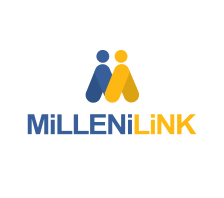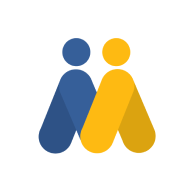Gen Z in the Workforce Pt. 2
Workforce Preparedness
An article from LinkedIn Talent Solutions titled “Does Gen Z Need Fixing? Or Just a Little Understanding?” sparked conversations within the walls of the Millenilink office. We spoke to three Millenilink Gen Z employees and tried to better understand the assumed ‘generation gap’.
This is our second installment, and we will be discussing the way that Gen Z has been preparing for the workforce, and how they are setting themselves up for career success at a young age. In part one we discussed Early Tech Exposure, read it here.
Meet our Gen Z interviewees:
Ayesha, Technical Recruiter: Ayesha recently graduated from York University where she attained a Bachelor of Human Resource Management degree. Ayesha held multiple industry-specific roles that were related to her career goals while still in high school. As Ayesha continues to work in Tech Recruitment, she has plans to pursue a CHRP certification.
Bolu, Web Marketing Intern: Bolu is entering her third year in Human-Computer Interaction at the University of British Columbia (UBC). Bolu has held 3 developer roles, as well as extra-curricular positions and activities in Social Media Marketing and Hackathon achievements that support her future career goals.
Madison, Tech Labor Market Research Intern: Madison is a 4th year student from Western University, pursuing a Bachelor of Management and Organizational Studies with a specialization in Consumer Behavior. Madison held an industry-related job while in school, and multiple extra-curricular roles related to specific career goals varying from sponsorship to journal review.
Workforce Preparedness
Discussion showed that all three of our interviewees took independent initiative to find their early work experiences. Ayesha, Bolu and Madison all held career-specific positions while still in high school, searching for industry experience and portfolio-building projects, and all three were shaped by these experiences and were able to develop their education plans to set themselves up for success. They found that gaining professional and future career-related work experience was not heavily emphasized while in high school and that they relied on family advice and independent research to find opportunities and ways to prepare. Internships were challenging to find, but all say that they were crucial for career direction and decision-making.
Ayesha had taken a co-op term in high school at a law firm. Ayesha initially thought she wanted to go to law school, so she took her co-op term at the law firm that had her doing mainly HR and administrative work, which is how Ayesha decided to pursue her degree in Human Resource Management (HRM). Other work experiences focused on HR and hiring shaped and further narrowed Ayesha’s interest in recruiting, helping to build her resume and experience, and providing a strong base that Ayesha could reflect on during her education.
On the topic of workforce preparedness, Bolu expressed that the importance of gaining work experience became apparent during the summer of grade 11, only after she had landed an impressive summer student role as a Developer. Bolu stated that it was after she already had her first opportunity, that she realized the importance of the experience. This first internship offered insight into the industry and showed Bolu other aspects of the ‘Developer’ role, Bolu was exposed to front-end development, product design and UI/UX. This early work experience allowed Bolu to shift her career goals proactively and “narrow and find the ultimate thing [she] loved” where she ended up specializing her degree in Human-Computer Interaction.
Madison found her first work experience the summer following Grade 12 as an Administration Assistant and Bookkeeper, hoping to gain experience related to her undergraduate program she was starting in the fall, in Business and Accounting. In this role, Madison was exposed to tasks related to the accounting field, a critical experience for Madison to base her future decisions on her field of study. Madison credits this internship role for opening her eyes to her incompatibilities with the field of accounting, and for realizing this before entering university. “I applied to mostly Accounting-related degrees, like Accounting and Financial Management at Waterloo and a similar program at Ryerson [now TMU] – All of the criteria I used to decide on the program I accepted revolved around my perceived goal of going into Accounting”. Thankfully, Madison was able to easily shift her specialization within her original degree (BMOS at Western), and be open to discovering new opportunities when she entered into first year of university. “I don’t know what I would’ve done if I chose what was a strictly Accounting program” Madison reflected, a real-time showing of her appreciation for being able to be flexible within her degree and for having this experience before it was too late. Now pursuing Consumer Behaviour, Madison has done freelance work throughout the semester to solidify her interest in the field.
These are three very different applications of the “early work experience’ topic. However, all scenarios resulted in our subjects being confident in their chosen industries and roles. Strong inferences can be made about the importance of early work experience, and the additional opportunity for teachers, guidance counsellors and also employers can better influence especially if that experience especially if that experience takes place before post-secondary education.
If all young professionals must rely on the advice of their parents, then there will be no consistency in the development of the next generation of the workforce. There is already talk with Gen Z about the obscurity of deciding on a career path and University major at 16, 17 or 18 years old, decisions most often made without any critical industry-specific experience. With important life decisions being made this early in life, we need to support our students with proper resources and experiences before these decisions are made, so our students can be confident in their choices and use their career-defining years effectively.
There are two more parts to come in this series: Flexibility and Work Environment, and Learning and Growth in the Workplace (and make sure you check out part 1).
Subscribe to our newsletter to make sure you don’t miss the next installment of Gen Z in the Workforce!


